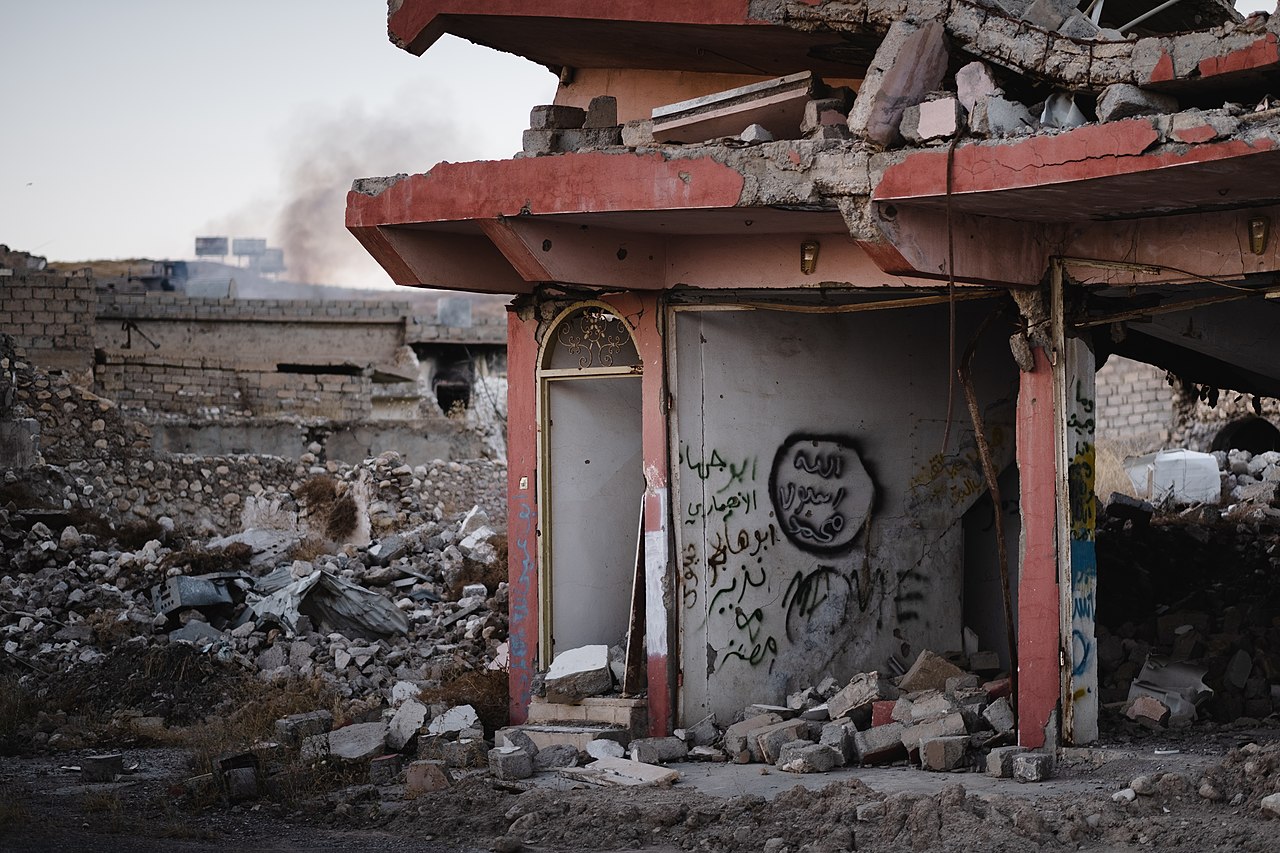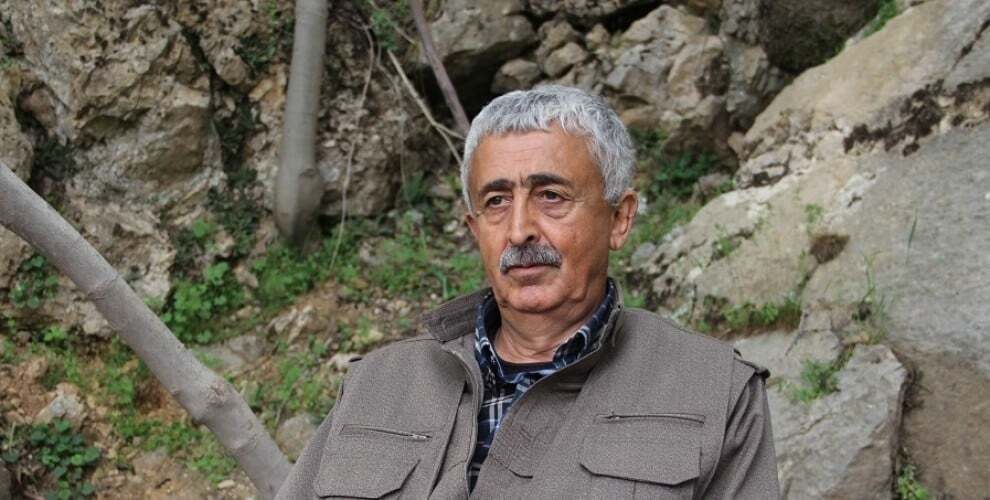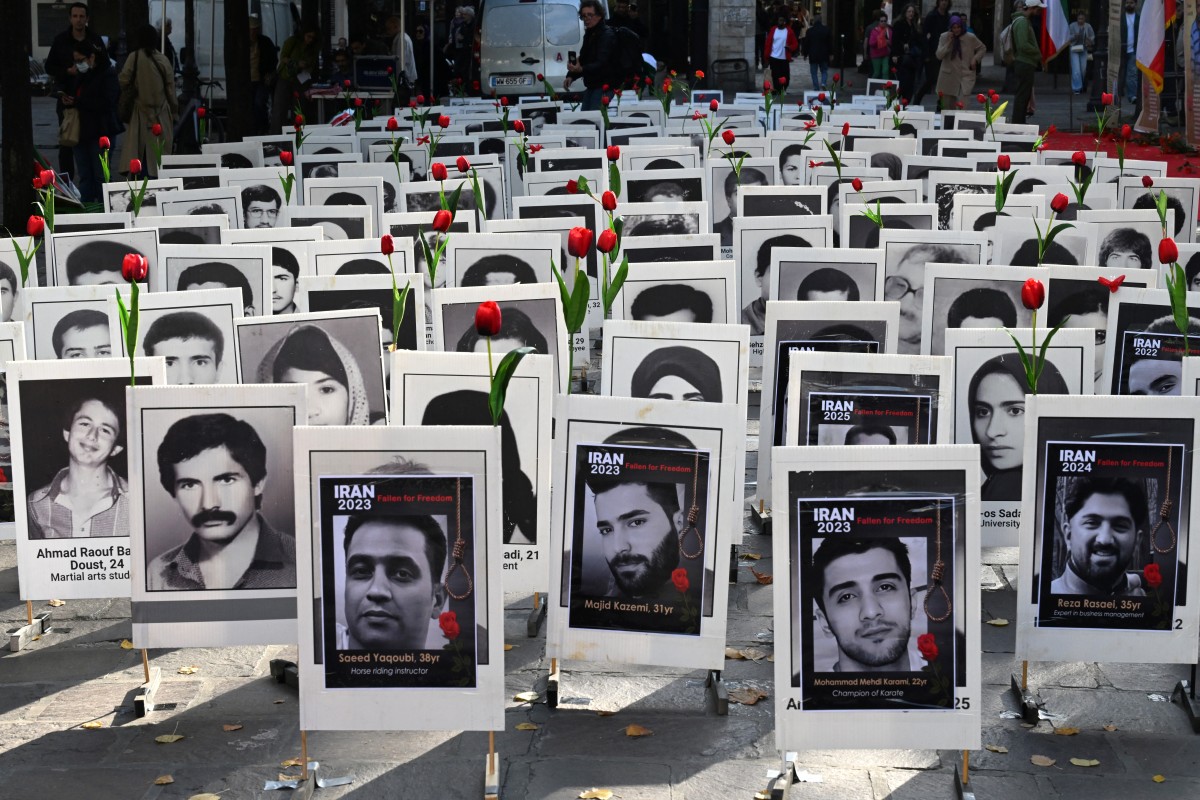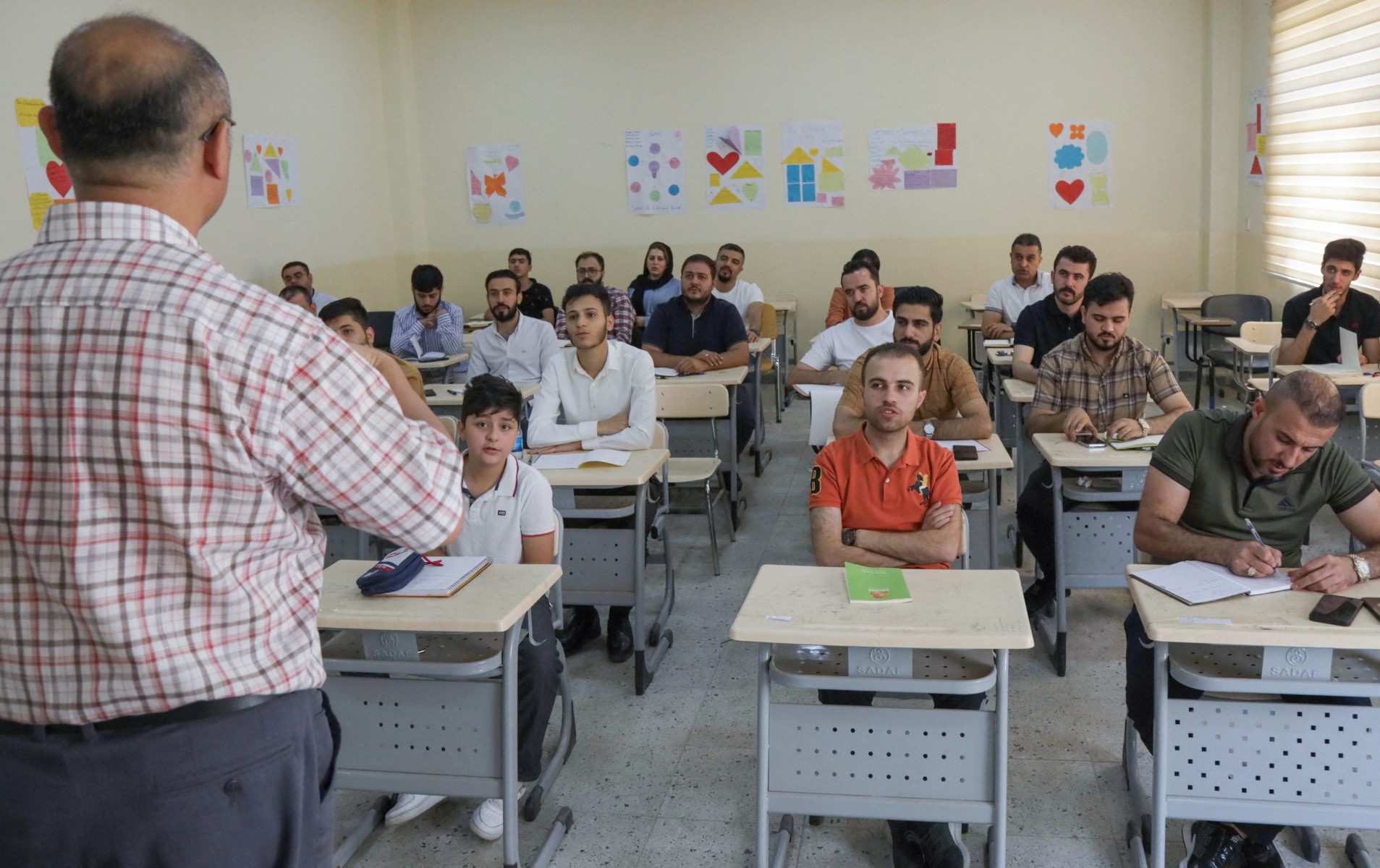Justice Deferred: The Legal Battle Against IS That Never Came

Islamic State graffiti in the ruins of Sinjar in July of 2019, following war with the Islamic State | Picture Credit: Levi Clancy / Wikimedia Commons
Islamic State graffiti in the ruins of Sinjar in July of 2019, following war with the Islamic State | Picture Credits: Levi Clancy/Wikimedia Commons
Nearly a decade after the Islamic State’s territorial defeat, thousands of foreign fighters remain in detention across North and East Syria. The Autonomous Administration of North and East Syria (AANES) aims to prosecute suspects for IS membership and war crimes but lacks the institutional capacity and resources to do so. European governments, while invoking the need for justice, have largely avoided responsibility: they neither repatriate their nationals nor support the development of prosecutorial infrastructure. Drawing on documents obtained through a Freedom of Information request, this article examines the Netherlands’ behind-the-scenes efforts to identify a viable solution. It explores how the Netherlands’ cautious approach to bringing justice reflects a broader pattern of international disengagement from one of the most pressing legal and security challenges in post-IS Syria.
Lip Service
The AANES—the de facto governing authority across much of Syria’s northeast—has consistently expressed its intention to prosecute thousands of foreign IS fighters for the crimes they committed. However, it lacks the judicial capacity and resources necessary to meet international fair-trial standards. These standards require professional investigators and prosecutors trained in international criminal law; robust evidence-collection mechanisms with forensic expertise; a victim-centered approach that allows victims to participate, testify, and seek reparations; witness protection; secure chains of custody; and comprehensive translation and interpretation services to ensure equitable participation for all parties.
AANES’s calls for international assistance to establish these mechanisms have gone unanswered. While European governments routinely emphasize the importance of accountability for IS crimes, their commitments have amounted to little more than rhetoric. This continued inaction has produced a protracted stalemate. Thousands of suspected IS fighters remain in detention under AANES control, effectively trapped in legal limbo with no clear path toward justice. The absence of an international mechanism not only undermines prospects for accountability but also raises concerns that these facilities could become sites of political reorganization, potentially facilitating an eventual IS resurgence.
Prosecution in the Region
Thousands of young people from Belgium, France, the Netherlands, Germany, the UK, and other countries flocked to Syria to join the Islamic State in the early 2010s. In the years after IS’s defeat in 2017, the Netherlands was an active participant in international discussions about the prosecution and trial of IS suspects. From 2018 to 2021, the Netherlands was a member of the European “CORE-8” (Germany, Finland, Sweden, Denmark, France, Belgium, the UK, and the Netherlands) and “CORE-7” (CORE-8 minus Finland). These countries advocated prosecution and trial in the region where the atrocities occurred, allowing victims to see justice firsthand. Trials were to be held in Syria and Iraq, guided by three fundamental principles: (i) compliance with international humanitarian law; (ii) no death penalty; and (iii) consular access to nationals prosecuted.
These principles posed significant practical obstacles. Iraq refused to cooperate with the international community, viewing external involvement in prosecutions as an infringement on its sovereignty. Moreover, Iraq’s continued use of the death penalty made judicial collaboration impossible. The country executed suspects convicted on terrorism charges related to IS membership. Cooperation with Syria was equally unfeasible, as diplomatic relations with Damascus had been severed. It remains unclear whether this stance has shifted under the de facto control of Ahmad Hussein al-Shara (also known as Abu Mohammad al-Jolani), who rose through the ranks of al-Qaida in Iraq before assuming leadership in northwest Syria. Potential trials in other regional states—such as Turkey or Israel—were likewise unrealistic.
Models
Between 2018 and 2021, officials from the Netherlands held extensive discussions on possible legal mechanisms for prosecuting IS fighters. Internal memos show that several models were examined—ranging from international tribunals to national courts—yet none proved workable.
- International Criminal Court (ICC): Ruled out because neither Syria nor Iraq is a party to the Rome Statute. Attempts to secure a UN Security Council (UNSC) referral were blocked by Russia and China.
- Ad hoc UN tribunal: Considered infeasible due to likely UNSC vetoes, high financial costs, limited political will to fund such a court, and a narrow focus on senior IS leaders. There was also little appetite among states to assume responsibility for those convicted.
- Sierra Leone model/hybrid tribunal: A joint UN–National court modeled on Sierra Leone’s post-civil-war tribunal was deemed politically impossible. It would require cooperation with Syria and Iraq, and would also need UNSC authorization.
- Rwanda model: Focused on punishment followed by reintegration and rehabilitation; seen as inapplicable to foreign nationals, who make up a significant portion of the IS detainees.
- Lockerbie model: Based on the UK–Libya agreement that established a special court in the Netherlands to try suspects in the Lockerbie bombing. Dismissed for the same reasons as the Sierra Leona/hybrid model.
- Nuremberg model: Ruled out due to the need for UNSC approval, high costs, uncertainty over where convicts would serve sentences, and an exclusive focus on senior leadership rather than lower-ranking fighters.
Still, within the ministry, a 2019 memo discussed creating an international tribunal for IS leaders in The Hague, noting that such an initiative would fit the Netherlands’ reputation as a “city of peace and justice.” Yet officials also flagged risks: bringing IS suspects to Dutch soil could lead to asylum claims by acquitted suspects, witnesses, or victims—and would contradict the government’s public stance against repatriation.
Rojava: A Fragile Hope for Justice
While multiple models were considered and rejected, the AANES offered to prosecute IS detainees locally, arguing that justice belongs where the crimes occurred. The Netherlands showed interest and explored options. At a 2019 meeting hosted by the Geneva Academy and Fight for Humanity, AANES outlined its position to Dutch officials:
- It had already tried more than 7,000 Syrian IS fighters under its own anti-terrorism laws.
- It was open to creating a special tribunal for foreign fighters, with international support and technical assistance.
- It opposed capital punishment and requested help building judicial capacity—from training judges to improving detention facilities.
For the Netherlands, trying cases in Rojava had clear advantages—no death penalty, local legitimacy, and proximity to the crimes. Although the Dutch External Foreign Law Adviser (EVA) warned that backing a Rojava tribunal could violate Syria’s sovereignty, others, including ministry-consulted international law scholars, disagreed, noting that modern international law permits some cooperation with non-state actors.
Ultimately, politics—not law—stalled progress. An internal memo bluntly noted that formalizing relations with the Syrian Democratic Forces (SDF) would be highly sensitive, since Turkey considers the SDF a terrorist organization.
The Cost of Inaction
The Netherlands’ internal deliberations reveal a government committed in words to the principle of justice, yet, in deed, sacrificing justice on the altar of geopolitics. Meanwhile, every year that justice is delayed, the legitimacy of international law weakens and the risk of IS resurgence grows. The world’s unwillingness to act seeds the next security crisis.
In the meantime, the AANES continues to detain thousands of foreign fighters with limited resources and mounting frustration. Its officials have hinted that if the international community refuses to act, they may proceed independently—establishing their own judicial mechanism for foreign IS suspects. If they do, it would mark a historic precedent: a non-state actor stepping into a vacuum left by state inaction to uphold international law.
Joost Jongerden
Joost Jongerden (PhD) is an Associate Professor of Rural Sociology at Wageningen University, the Netherlands. His research focuses on forced migration, rural development, and political and violent conflict in the Kurdistan region, with particular attention to dispossession, displacement, and how people actively pursue alternative futures—an approach he describes as Do-it-Yourself Development.



